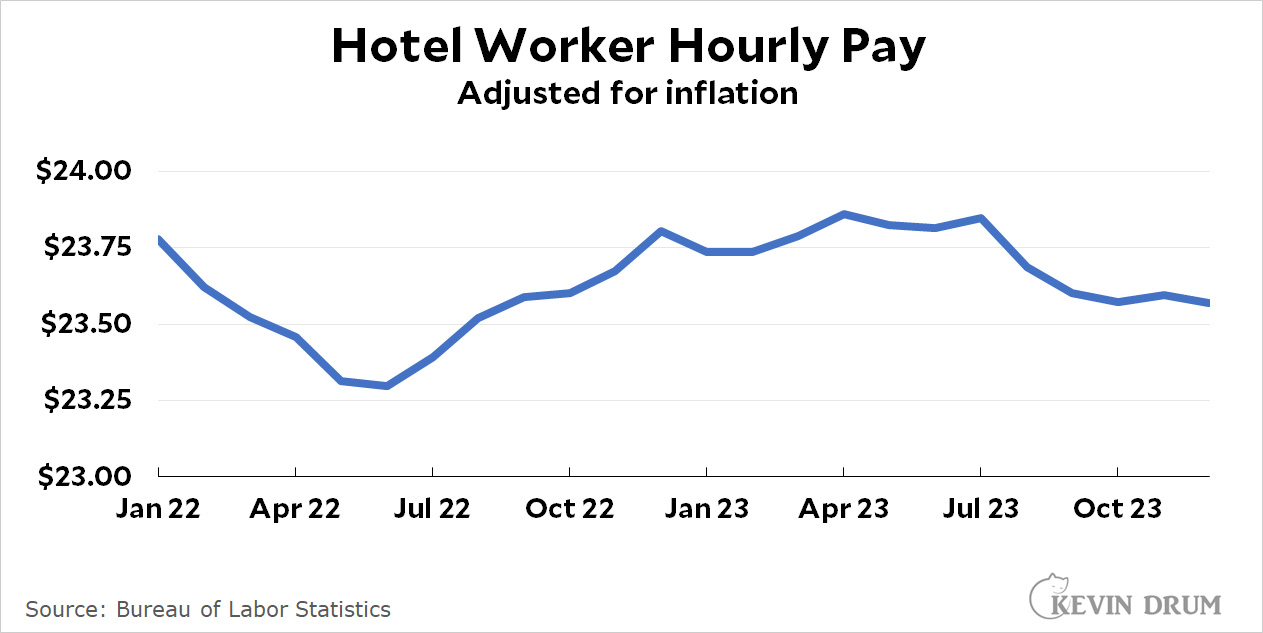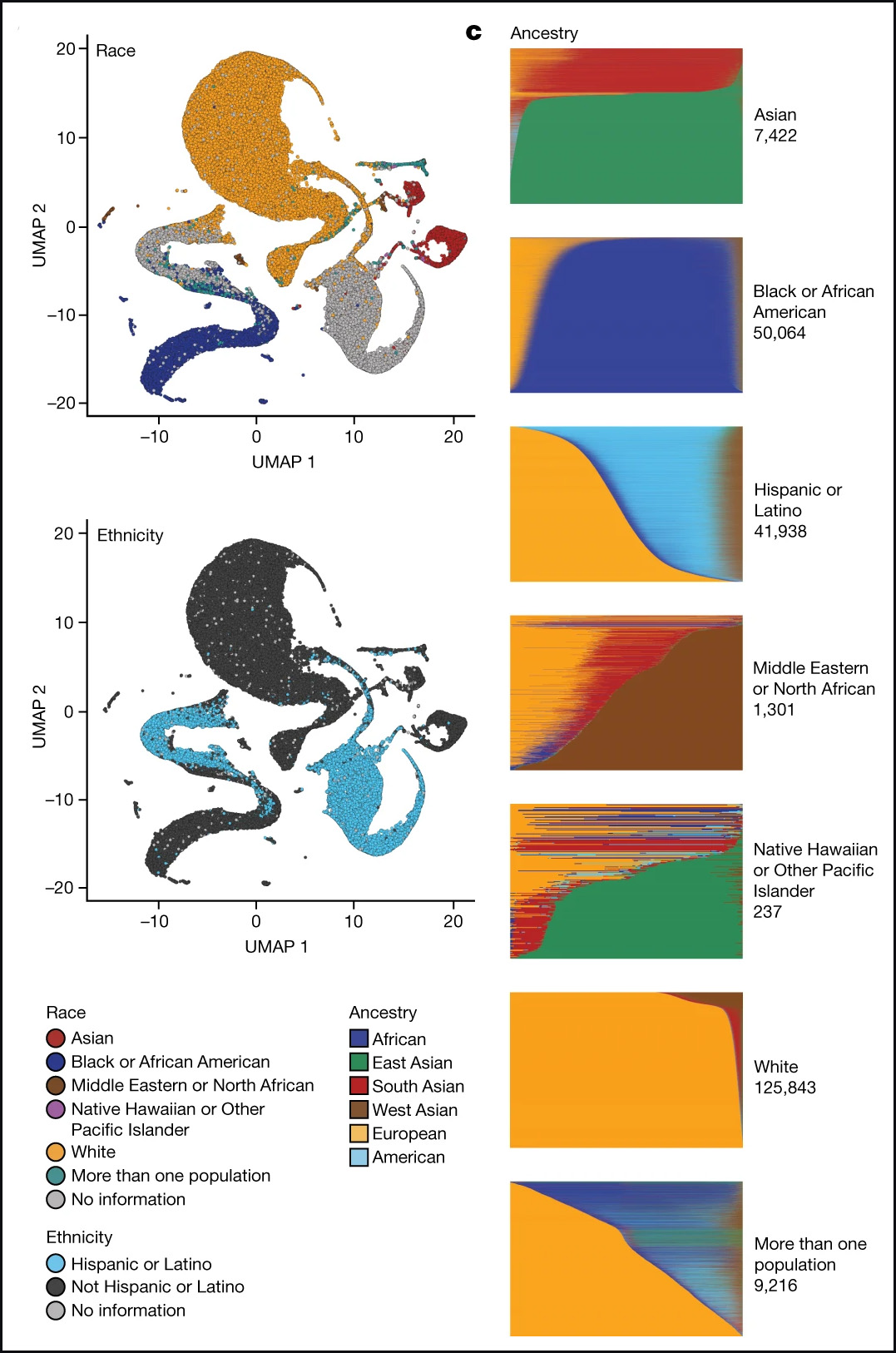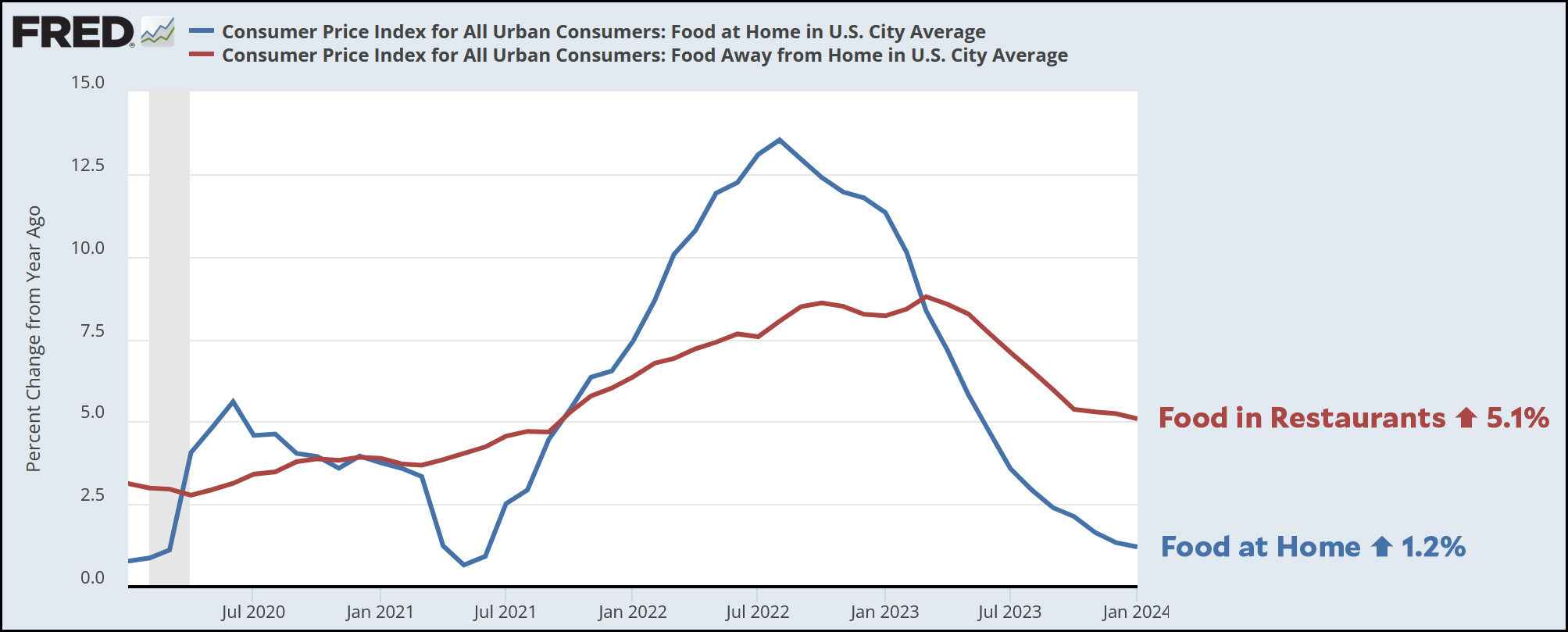This is an iris alstroemeria in our front yard, taken at dusk with fill flash. I don't especially like the look, but it's still interesting occasionally to see the difference between artificial and natural lighting.

Cats, charts, and politics

Mitch McConnell is stepping down as Republican leader in the Senate. Good riddance to him.
Still, his departure reminds me of the resignation/firing of Jeff Sessions as attorney general in 2018. When Sessions was initially appointed he seemed to us liberals like pretty much the worst, most ultra-conservative, quasi-racist attorney general imaginable. Then he got replaced by Bill Barr, and we discovered that at least Sessions had a certain Southern-inflected personal sense of integrity. Barr didn't. The worst turned out not to be the worst after all.
The same is true of McConnell. As bad as he's been for the Senate, he has limits. January 6 was too much for him. Trump is too much for him. Betraying Ukraine is too much for him.
So far, McConnell's potential successors are fairly mainstream Republicans, but the voting hasn't happened yet and you never know who we'll get. It's hardly inconceivable that we could do even worse than McConnell. As always, be careful what you wish for.
*Not really. But he does say he can't post his $454 million bond unless he sells off some property:
Donald J. Trump offered a New York appeals court on Wednesday a bond of only $100 million to pause the more than $450 million judgment he faces in his civil fraud case, saying that he might need to sell some of his properties unless he gets relief.
....In seeking relief, Mr. Trump’s lawyers disclosed that they would be unable to secure a bond for the full amount, raising the prospect that he might soon default on the judgment if the appeals court denies his request. Without a stay, Mr. Trump’s lawyers warned, he likely would have to sell some of his New York properties “under exigent circumstances,” in what would be a punishing blow to the former president.
"Exigent circumstances" means a forced fire sale, but I'm not sure why. The overall Manhattan commercial real estate market has been pretty steady lately and the office market has rebounded since last year. So Donald should be OK.
Klarna is a Swedish e-shopping site that I had never heard of until yesterday. I remain slightly unsure of what they actually do, but they claim to handle 2 million transactions per day for half a million merchants. This means they employ a lot of customer service agents in their call center.
At least, they used to:
Klarna today announced its AI assistant powered by OpenAI. Now live globally for 1 month, the numbers speak for themselves:
The AI assistant has had 2.3 million conversations, two-thirds of Klarna’s customer service chats. It is doing the equivalent work of 700 full-time agents...and communicates in more than 35 languages. It’s estimated to drive a $40 million USD in profit improvement to Klarna in 2024.
....Klarna's AI Assistant offers real-time updates on your outstanding balances and upcoming payment schedules, ensuring you never miss a Klarna payment. It also provides a clear understanding of your purchase power, explaining your spending limits and the reasons behind them, empowering you to make informed and confident shopping choices.
For now, Klarna says the displaced customer service agents will be reassigned to help other customers. But obviously this won't last forever:
In the longer term, as more companies adopt these technologies, we believe society needs to consider the impact. While it may be a positive impact for society as a whole, we need to consider the implications for the individuals affected.
Welcome to the future. It's only going to get better/worse from here on out.
In our last episode, the Alabama Supreme Court effectively abolished in-vitro fertilization by ruling that frozen embryos are human beings, thus making the loss of any embryo a potential murder or manslaughter. Now, in our latest episode, the Alabama legislature is fighting back. Embryos are still human beings, as any God-fearing Alabamian knows, but new legislation says it doesn't matter:
No action, suit, or criminal prosecution shall be brought or maintained against any individual or entity providing goods or services related to in vitro fertilization.
This is really something. Doctors and organizations would be categorically immune to suits for anything related to IVF. They could accidentally cut off your balls or remove your uterus, and it would be tough luck.¹ Embezzlement? Why not! Credit card fraud? As long as you're overcharging for something related to IVF services, go right ahead.
IANAL. Maybe there's some principle of law I'm missing here. But that paragraph is basically the entirety of the legislation, and no exceptions are listed.
What's more, even as broad as this language is, it might not even work. The Supreme Court ruling relied on Alabama constitutional law and it's not clear if a mere statute could weaken rights derived from it.
These guys are nuts. And by "these guys" I mean pretty much the entire government of Alabama.
¹No, this couldn't actually happen. But you get the idea.
Hey, have you heard that an illegal immigrant killed a nursing student in Athens, Georgia? Maybe not, says Bob Somerby:
On one channel, this topic drove eight hours of primetime reporting and discussion. On the other channel, the topic doesn't exist. However you may assess the dueling news judgments, our tribes are now living in two different worlds with respect to topic selection and delivery of information.
Immigrants, both legal and otherwise, commit crimes at lower rates than natives. Still, they do commit crimes, and if you force feed your audience hours of news about every one, they'll naturally think that crime from illegal immigrants is out of control. It's all theater.
Meanwhile, in Georgia, Republican attorneys are still trying to disqualify Fani Willis from overseeing her voter fraud case against Donald Trump and others. It won't work, but everyone is paying attention because it's about sex and romantic relationships. In other words, it's all theater.
Up in Washington DC, Republicans are trying to subpoena the tapes of Robert Hur's interview with Joe Biden. This is not because they expect to discover evidence Hur missed of Biden taking classified documents from the White House. It's because they hope to leak excerpts from the tapes that appear to show Biden stumbling over his answers. More theater.
The impeachment of Alejandro Mayorkas? Theater. The "Biden crime family"? Theater. Razor wire in the Rio Grande? Theater. Claiming to support IVF without being willing to actually do anything about it? Theater.
It's nothing but endless theater from Republicans these days because they have nothing else left. It's hard to remember the last time they had a serious, substantive discussion about something.
The good ol' Wall Street Journal reports today on the travails of the hotel industry:
Even after clawing back hundreds of thousands of jobs during the past two years, the industry is still light on staff and often struggling to adapt.... At the same time, hotels across the U.S. have held their daily room rates near all-time highs this winter, in part to offset the increase in wages to lure workers back. Hotels will collectively pay $123 billion in compensation this year, up more than 20% from 2019, according to the American Hotel & Lodging Association.
It's true that hotels are still light on staff: total employment is down about 10% compared to before the pandemic. But about that pay:
 Hotel pay went up in 2021, but over the past two years it's been dead flat. In fact, actually down 21¢ an hour. This doesn't sound like a herculean effort to attract more staff.
Hotel pay went up in 2021, but over the past two years it's been dead flat. In fact, actually down 21¢ an hour. This doesn't sound like a herculean effort to attract more staff.
In fairness, the room rates that the Journal reports as "near all-time highs" are—surprise!—lower than they were four years ago when you adjust for inflation.
You will always get a distorted view of industry dynamics if you don't account for inflation. So why do the Journal and other news outlets so resolutely refuse to do it? In this case, it's just not true that hotels are charging high room rates and paying sky high wages but still can't find enough workers. In fact, (a) hotel stays haven't grown since 2019, (b) hotels are having trouble keeping room rates from falling, and (c) as a result they've been reducing pay and deliberately cutting staff. Why not just report that?
Back in 2015, the NIH started a longitudinal research program called All of Us with the goal of collecting genome data from a million Americans of every possible ancestry. The goal was to improve health care by figuring out how best to treat diseases in people of different backgrounds.
The program is up to 413,000 genomes and recently announced its fifth data release. Nature published a package of articles about it, including an introductory piece focused mostly on comparing All of Us with already known disease analysis. For example, the genomic markers of LDL-C cholesterol are well established, and All of Us replicated those results with very high accuracy.
So where am I going with this? It turns out that genomic analysis is typically carried out in a very high number of dimensions, and this data needs to be reduced to two dimensions to make visual sense to us limited humans. There are lots of ways of doing this, just like there are lots of ways of projecting a 3D globe onto a 2D map (the Mercator projection is one of many).
The method that's lately become a favorite in the genomic community is called UMAP, and the Nature paper included this 2D UMAP reduction of population groups constructed from its database:
 On the left are the UMAP reductions, which show genetically related population groups. The colors are from self-reported race and ethnicity. This mapping, according to the authors, agrees quite well with the genetic ancestry estimates of the Human Genome Diversity Project (on the right).
On the left are the UMAP reductions, which show genetically related population groups. The colors are from self-reported race and ethnicity. This mapping, according to the authors, agrees quite well with the genetic ancestry estimates of the Human Genome Diversity Project (on the right).
Fine, but where am I going with this? Well, it turns out that a bunch of geneticists are concerned about the UMAP illustration. Why? Because UMAP is designed to be good at keeping related neighborhoods together after the 2D reduction, and this means it did a good job of showing ethnic and racial neighborhoods from the original high-dimensional data. In other words, to make a long story short, it made genetically similar population groups visible even to laymen:
The figure has reignited a long-standing debate among geneticists about how best to discuss and depict race, ethnicity and genomic ancestry, given how these terms can be misinterpreted and weaponized by extremists.
“The problem is, a lot of people will see figures like this as supporting a viewpoint” that race and ethnicity are closely aligned with genetics, says Ewan Birney, deputy director-general of the European Molecular Biology Laboratory in Cambridgeshire, UK. “And then they build castles in the air from all this.”
....To a layperson, the chart shows several distinct colourful blobs that could be misinterpreted as supporting genetic essentialism — the pseudoscientific belief that racial or ethnic groups are distinct genetic categories, and that individuals of the same group are genetically similar, Birney says.
We are in for a world of hurt if we don't get over stuff like this. Genome mapping is coming at us like a freight train, and it says what it says. We don't know what that will be yet, but we do know a few things. One of them is that there really are genetically identifiable population groups that correspond closely to common notions of race. This should hardly be a surprise since these common notions are mostly based on geography (Europe, Asia, Africa, South America, and others).
The genetic markers we're talking about are relatively minor: the difference between population groups can be measured in thousandths of a percent of the whole human genome. The vast majority of our genomes are identical no matter what our background.
Still, the differences exist, and we don't yet know what all of them are. And while we may or may not like everything we eventually discover, arguing over the minutiae of different mapping algorithms will get us nowhere. We can't allow ourselves to be hamstrung by a few creepy race extremist who are going to believe what they believe regardless. Just do the science and let the chips fall where they may.
Eating rice and beans instead of meat. Planning out meals a month in advance. Trying to raise more food in backyard gardens. Americans are changing the way they eat, shop and live to cope with a stretch of record food inflation.
For chrissake, can we stop this nonsense? Here is food inflation:
 If you eat out a lot, food prices are still rising. But if you eat at home, food inflation is close to zero. Nobody has to plan meals a month in advance or grow food in a backyard garden.
If you eat out a lot, food prices are still rising. But if you eat at home, food inflation is close to zero. Nobody has to plan meals a month in advance or grow food in a backyard garden.
Over the past year, wages are up about 3.8%, more than food at home and only a little less than food eaten in restaurants. Food inflation is just not a problem anymore.